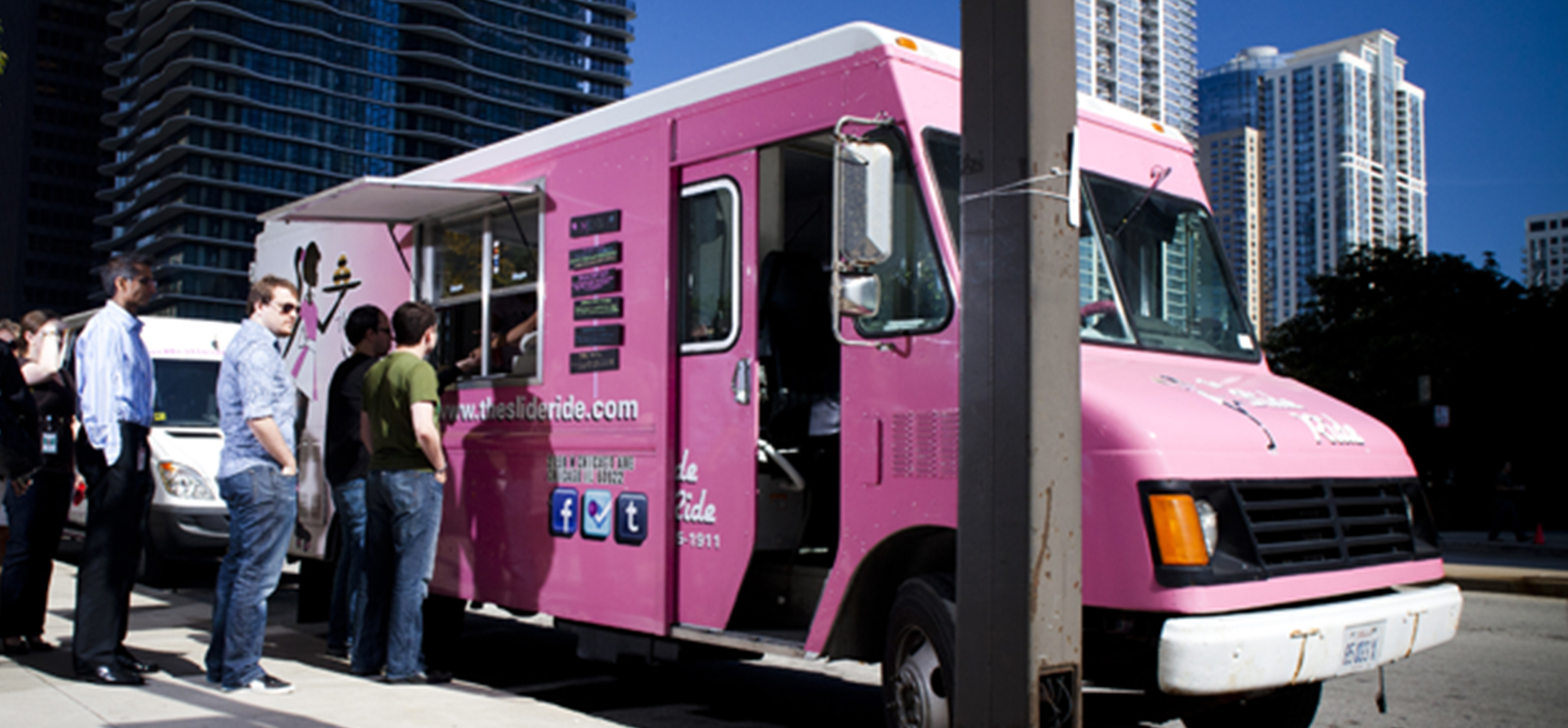
(Photo by Chris Strong)
A Law School clinic wants to remove the restrictions on Chicago’s mobile chefs.
Matt Maroni wanted to be the chef, and chauffeur, of his own food truck. In early 2010 he started researching the business and discovered several restrictions in Chicago law.
For example, vendors who sell food from trucks and carts in the city must park at least 200 feet from restaurants and cannot serve food before 10 a.m. or after 10 p.m. In addition, the food must be prepackaged rather than cooked in the vehicles.
Maroni pressed on, opening the food truck Gaztro-Wagon in 2010. He visits different locations around the city every day, which he announces via Twitter or text message, selling food prepared in an Edgewater storefront. Maroni also became an activist, establishing chicagofoodtrucks.com to push for fewer obstacles.
He convinced his alderman to introduce an ordinance that Maroni wrote to allow on-site food preparation. “From the beginning it was just about me being able to get a food truck,” Maroni says, “and it just mushroomed into something bigger than I ever imagined.”
In August the Law School’s Institute for Justice Clinic on Entrepreneurship joined Maroni’s cause, launching My Streets! My Eats!, a campaign to ease the restrictions. Although the clinic backs the ordinance, under city-council committee review in October, it supports even farther-reaching proposals. “We’re hoping that it’s only one stepping stone in our progression toward the ultimate goal,” says clinic director Beth Milnikel, “which is making sure that Chicago is open for street food.”
Chicago’s restrictions are not unusual—45 of the 50 largest cities in the United States, the clinic says on its website, “put real barriers in the way of street vendors.” Regulations include “no-vending zones” in 33 cities that prohibit sales in downtown areas or around stadiums. Twenty cities prevent mobile sales near restaurants with similar offerings and 19 limit how long a food truck can stay in one place.
At the same time, as the Economist noted last year, mobile vending has become a bigger and better business. “Portland, Austin, San Francisco, and New York have thriving Twitter-driven food-truck scenes,” the magazine reported. Proponents of establishing a similar scene in Chicago see it as a matter of entrepreneurial freedom. Opponents raise public-health concerns over food-preparation conditions, sanitation issues from the trash the sellers and customers generate, and the economic threat to brick-and-mortar restaurants.
Maroni says the perception and reality of mobile eateries as “roach coaches” have changed, and the proposed ordinance includes food-safety requirements. The law would require mobile vendors to use a commissary to be licensed. Those commissaries would have their own licenses and be subject to inspection. Supplies from the commissaries could then be used in the trucks for on-site preparation.
The existing laws have not deterred some Chicago chefs. Phillip Foss runs the Meatyballs Mobile, a “silly and cute name” for a truck with serious menu selections, including “beef short ribs mixed with blue cheese with Waldorf accompaniments, radicchio marmalade, celery, apple, candied walnuts,” he says in a My Streets! My Eats! video.
Foss says that confusion about the law has led to run-ins with police. Tamale vendor Claudia Gonzalez has received several tickets, and her son, who helps her with the business, has been arrested.
Street vendors, says the clinic’s Milnikel, shouldn’t be “terrified that they’ll be arrested for selling tamales to their neighbors.”
Video
The Law School’s Institute for Justice Clinic on Entrepreneurship talk about food trucks in Chicago and their My Streets! My Eats! campaign.
